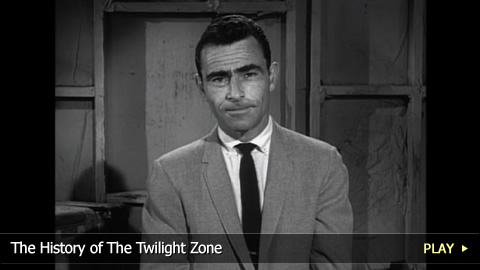The History of The Twilight Zone

It’s the first adult science-fantasy anthology series to appear on American television, and still capable of shocking audiences today. Welcome to WatchMojo.com and today we’ll be taking a look at the history of The Twilight Zone.
Introduced to audiences on October 2, 1959, this entertaining and thought-provoking collection of stories on the human condition was created by Rod Serling, a novelist and fan of earlier works of pulp fiction.
As a result, Serling based the program on that of the radio programs, “The Weird Circle” and “X Minus One”, as well as the television series’ “Tales of Tomorrow” and “Science Fiction Theatre.”
Based on provoking social commentary, The Twilight Zone’s focus on serious science fiction allowed its writers to get away with creating harsh social commentary on contemporary topics. In fact, the title itself was used as a military term for a moral and strategic “gray area.” Had it not been for masking its real-life focus with fiction, it would have been forbidden from making its way to countless living rooms across the United States.
Among the many societal issues addressed by the show were the topics of human nature, racism, government and war.
Upon its release, The Twilight Zone became enormously popular due to causing audiences to think about the world around them. It also contained an unpredictable mixture of self-contained drama, fantasy, science fiction, suspense and horror.
Moreover, the anthology series often treated audiences to something they hadn’t experienced before, namely, unexpected twist endings and grim outcomes that would never be neatly resolved.
Plus, its self-contained structure allowed for many different actors and stars of the time to make guest appearances.
Following the success of the original series, which ran from 1959-1964, it received many other spin-offs. These included a radio series, a comic book, a magazine, live theater productions, video games, and Steven Spielberg’s 1983 feature film adaptation “Twilight Zone: The Movie.”
In fact, the show was so popular years after its initial run, that it was given two refreshes in the form of both the 1985 and 2002 series; all of which continue to run in syndication today.
The Twilight Zone is best remembered for its revolutionary approach to story-telling, dark subject matter, dramatic soundtrack and narrator. Because of these classic elements, it remains a popular source of inspiration for modern science fiction and psychological horror.
